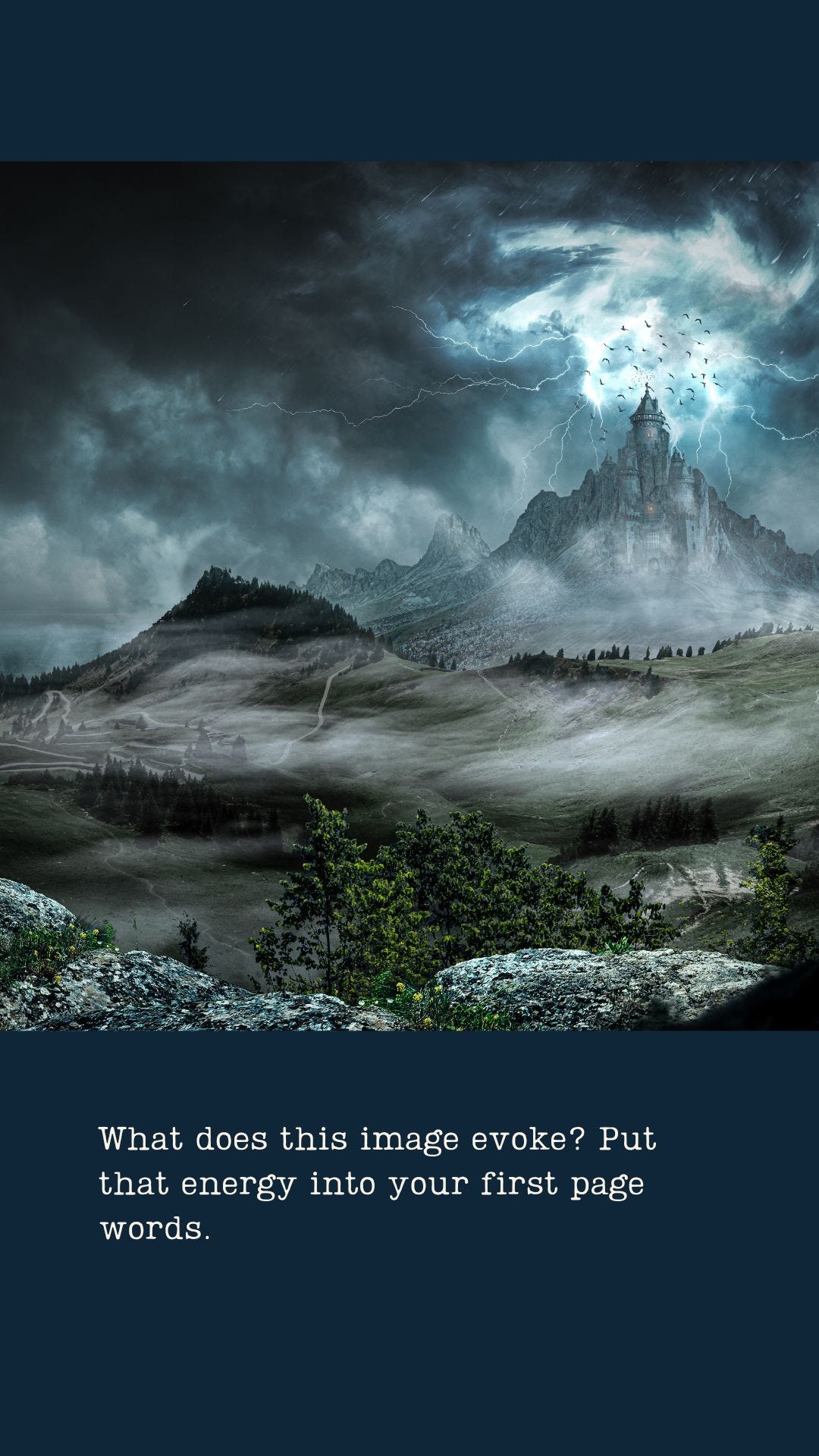In today’s world, your first page(s) are the most important of your novel.
For one thing, there’s a lot of competition out there, meaning that editors and agents – who really do want to find your good stuff, because that’s how they win, too – can’t devote a lot of time to each submission. Even if you have written what is surely a best seller/award winner/instant classic, if that story rests behind a so-so opening page, it won’t be found.
I’ve been told by, ahem, reliable sources that many agents and editors read on their e-readers, and many on the fly (the subway, the train, an airplane, etc.) and if page one doesn’t grab them, that’s the end. For whatever reason, when we read on e-readers we need even more impactful words than when we read printed material.
Now, impactful doesn’t mean grotesque or over the top; but what does it mean? What do you need in order to catch an agent/editor’s attention?
A Checklist of First Page Musts
Because we need to ground our readers in our story there are some things that must be on the first page. Here they are (and please note: in a minute I’ll talk about how to plant these “musts”):
Your character’s first name, age, and gender identity.
Readers need to attach to your main character, and if they’re confused as to just who that is, they won’t be able to. And if your MC’s gender is totally ambiguous (unless that’s the point), readers may mis-identify, which is also confusing.
General location, season, and socioeconomic indicators.
Ground your readers in the world so those expectations are set.
A hint of stakes.
Especially in writing for young readers, who have little patience with a slow build, you must let readers know what trouble lurks for your main character. Hint at the stakes and story problem and always, always create tension.
A strong voice.
It’s the number one thing editors and agents look for – your voice. (I’ll be discussing voice in a future post.)
No backstory/preamble/stage-setting/throat-clearing.
Readers want to begin your story directly in your story present. Don’t begin with a “how did we get here” summary of prior events. Dive right in.
How to Manage These “Musts”
Obviously, you don’t want to tell the reader these things, because that would be boring as heck. Instead, you want to begin “in medias res” or right in the middle of things happening, yet without confusing the reader
.
You’ll need to layer things in. Create an atmosphere. Slip bits of information into your sentences in a seamless fashion. Use and evoke emotion without telling the reader those emotions.
I know – this is way easier said than done, which is why I rewrite my first pages hundreds of times, and often my first page is the last page I revise (for the hundredth time) before submitting.
One trick is to use strong nouns and active verbs that resonate with the story you’re trying to tell. If you use words like castle, storm, darkening, swarms, stumbles, screech, echo, rough, stench, you’re sure to evoke a creepy sensation that forecasts your horror story to come. I suggest making a list of words that evoke, for you, a sense of the book you are writing. See how many of them can replace the words you already have, or rephrase to bring them into your narrative.
Because – every single word you use on page one needs to be carefully chosen. Your words need to create the fictive dream that a reader cannot resist tumbling into, and you want to keep the reader right there in that dream until they are hooked.
Another trick is to get to the library or bookstore and pick up the latest books in your genre/audience range. When you read that first page – and very importantly, that first sentence – does it have the punch, the impact that makes you want to read on? If so, why? If not, what’s wrong or missing?
And notice how books are laid out. Often that first page is a half page, beginning halfway down the printed page, which means you have even less real estate to work with in creating reader interest. Don’t waste this real estate on useless facts or bits of information. Create intrigue by leaving things out (see my previous post on this) and build both character and story problem immediately.
Never Forget the Importance of Page One
The difference between getting the attention of an editor or agent and ultimately reader and having your masterpiece remain undiscovered is just this: the page one hook must be set.
Writing Help For Artists
If you’re looking for community, content, and support, I’m building a mentorship program that opens in early 2024 – but it’s limited enrollment, so please let me know if you’re interested and I’ll send you an application.
I would also love to know what else you’re looking for so contact me with questions or suggestions here.




This is some of the most concrete first page advice I've heard yet. Thanks, Janet!